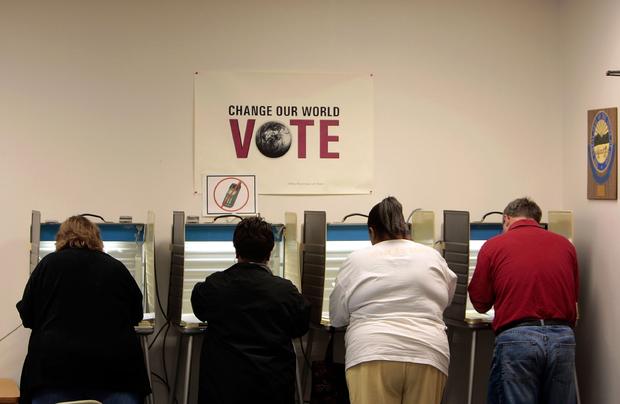South Carolina voter ID law goes to court
(CBS News) A federal court in Washington today begins several days of hearings over South Carolina's contentious voter ID law, which the Justice Department argues discriminates against minorities.
The Justice Department in December of last year blocked South Carolina's new law, which would have required voters to show poll workers a state-issued driver's license or ID card, or a U.S. military ID or passport.
Under the Voting Rights Act, the Justice Department is required to approve any changes in election laws in South Carolina and several other states with a history of electoral discrimination. The Justice Department argued that South Carolina's law went too far since black voters in the state are 20 percent more likely than white voters to lack a driver's license or state photo ID card.
State Sen. Larry Martin, who sponsored the law, told CBS News earlier this year, "It wasn't directed at minorities. It was directed at the process."
Martin said he sponsored the law to "protect the integrity of elections," and the law's defenders point to the hundreds of dead people who are on record as voting after the date of their death. There is evidence, however, that those cases amount to clerical errors rather than voter fraud.
Meanwhile, state Sen. John Scott, an African-American Democrat opposed to the law, will testify this week that Republicans passed the bill to suppress likely Democratic voters, McClatchy reports. Moreover, Scott charges he was excluded from final deliberations over the law.
"Based on approximately 25 years of experience in the (S.C.) Senate and House of Representatives combined, I believe that the members of the General Assembly knew that minorities are overwhelmingly likely to vote Democratic," Scott reportedly said in advance written testimony. "I also believe that the members of the General Assembly expected the voter ID bill to lead to lower turnout among minority voters."
Scott is just one of dozens of witnesses who will testify before the three-judge panel this week, including lawmakers, experts and people representing special interest and advocacy groups.
The federal court panel, which includes two judges appointed by President George W. Bush and one appointed by President Bill Clinton, is expected to rule in the case this fall, but the case could ultimately go all the way to the Supreme Court.

